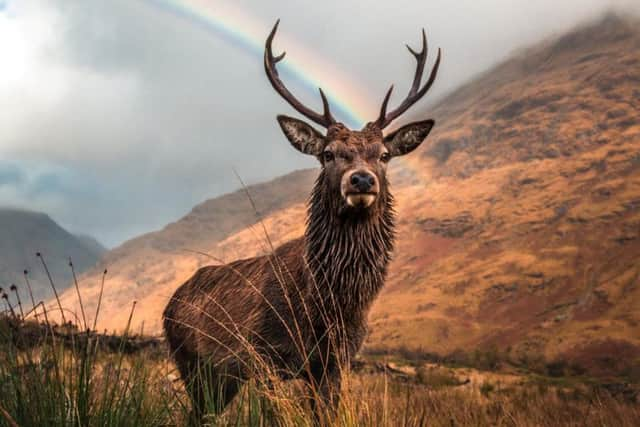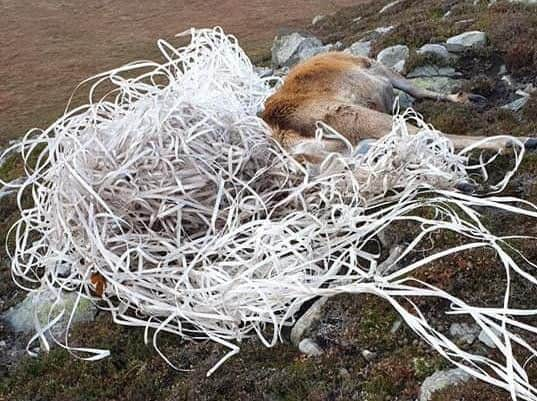Stag dies after being found on Scottish island bound in dumped plastic strapping
The distressed animal was discovered on a hillside on the west coast of Jura, in the Inner Hebrides, yesterday.
It is thought he had been grazing on seaweed by the shore when the plastic banding caught on his antlers.


Advertisement
Hide AdAdvertisement
Hide AdHe then walked onto the hillside, where he has been starving for the last week as the plastic was wrapped around his mouth.
The animal was discovered by gamekeeper Scott Muir who said the stag later had to be put to sleep.
Scott, who has lived on the island - with a population of just 230 - all his life, said plastic pollution on the coast has worsened in the last five years.


He said: "I was walking over the estate when I saw the plastic waste and realised there was a stag caught.
"I thought it was dead at first but as I approached it I could see his head start to move.
"These can be 18st animals and I know how powerful they can be, but he looked tired and stressed and he couldn't see because the plastic was right around his antlers.
"He wouldn't have been able to graze as it was right over his mouth, so he was effectively starving.
"It looks like he has then walked about a mile up onto the hillside; no mean feat considering it was tangled around his back leg as well as round his antlers."
Advertisement
Hide AdAdvertisement
Hide AdScott is also a volunteer with Wild Side of Jura, a group aiming to protect the west coast said the plastic banding is used in conjunction with fishing.
He said: "We can't categorically say where it came from but I'd be willing to bet some sort of commercial fishing, fish farm, which is what we are trying to stop on the west coast of Jura."